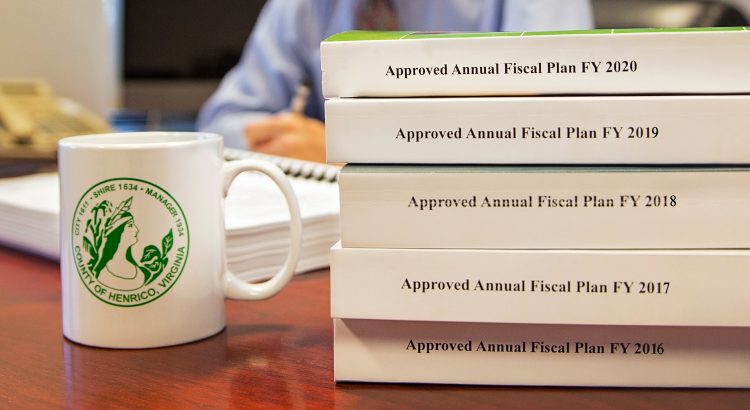The budget for the 2021 fiscal year (FY2021) that covers July 1, 2020 through June 30, 2021, was first introduced to the Board of Supervisors on March 10, 2020, just six days before the County’s first case of COVID-19. By all measures, the County was positioned to enjoy one of the best budget years in recent history; poised to implement several key initiatives and programs to further cement Henrico’s place as a leader in local government. As we have all come to know, the onset of a global pandemic had significant local impacts on both the health and economic fronts and swiftly changed that outlook. The Department of Finance immediately went to work to recast a budget based on updated revenue projections which anticipated a significant economic recession. Nearly $100 million was cut from that initial budget proposal when compared to the plan that was ultimately adopted by the Board in May.
Every avenue was explored to ensure that all County departments are still able to deliver core services that are needed by Henrico residents and businesses, to limit the financial burden placed on our community to support those programs, and to limit the impacts to our workforce. Some of the strategies included: a delay of cash-funded capital, across the board operating cuts, holding many positions vacant, and removing all new initiatives that were originally planned for FY2021.
Knowing that none of us have all the answers, two additional, non-traditional strategies were also deployed. We established a cross-functional employee workgroup to explore cost-cutting strategies and an email address ([email protected] – which remains open) to solicit feedback from the workforce and community. Both avenues proved fruitful. For example, it was an email from an employee that birthed the voluntary retirement incentive program that is anticipated to save more than $1.5 million.
The County’s fiscal plans for this year are ultraconservative and meant to prepare the County in case the pandemic continues throughout the fiscal year. As part of that, appropriations (money that has been made available to departments to spend) are being done on a quarterly – instead of annual – basis. That practice gives the Board of Supervisors, the County Manager, and Department of Finance time to evaluate data in real time and adjust spending/financial plans as needed.
The County has seen some local revenues continue to perform stronger than anticipated. It is still too early to make any longer-term financial decisions based on what we have experienced to date. Our most recent reports show meals taxes for May down 26.5%, occupancy taxes for May down 63%, and sales taxes for April down 9.8%. Our unemployment figures continue to hover far above anything recorded in modern history.
Our team continues to monitor the local economy and has not wavered in the spending freeze, ensuring that we are only making essential purchases, for now. The important thing to remember is that these steps are meant to protect us from what we may not see coming in the future.
What does this all mean for you? We all play a role in fiscal stewardship. Employees like you, who are delivering the front-line services to our residents, see things from a unique perspective. Many of you have ideas about how we could do things better, differently, more efficiently, and more cost effectively. Now, more than ever, is the time to bring those forward. Please email [email protected] or call me anytime (804-501-4805). Every dollar we save today is one we can invest tomorrow.
Read More


